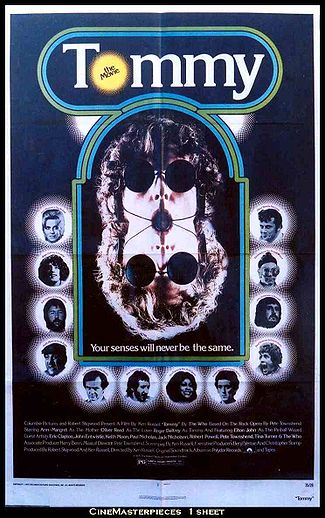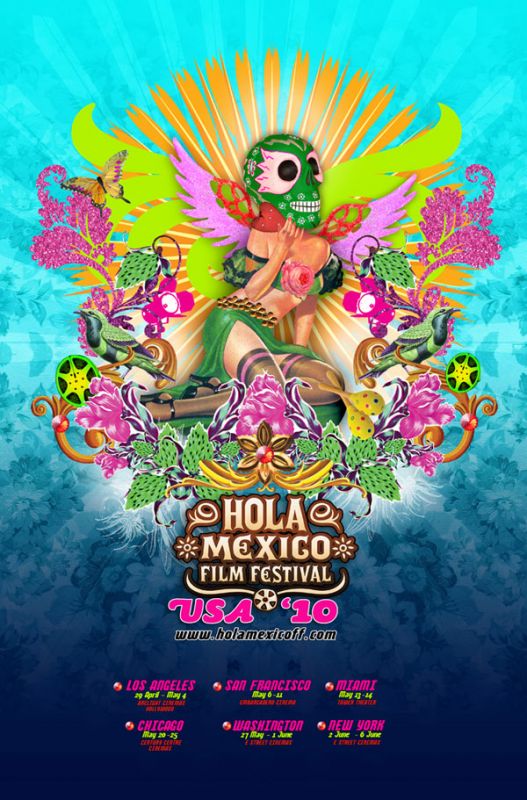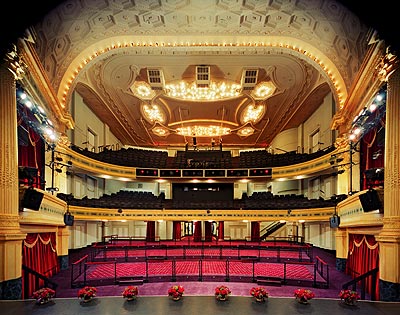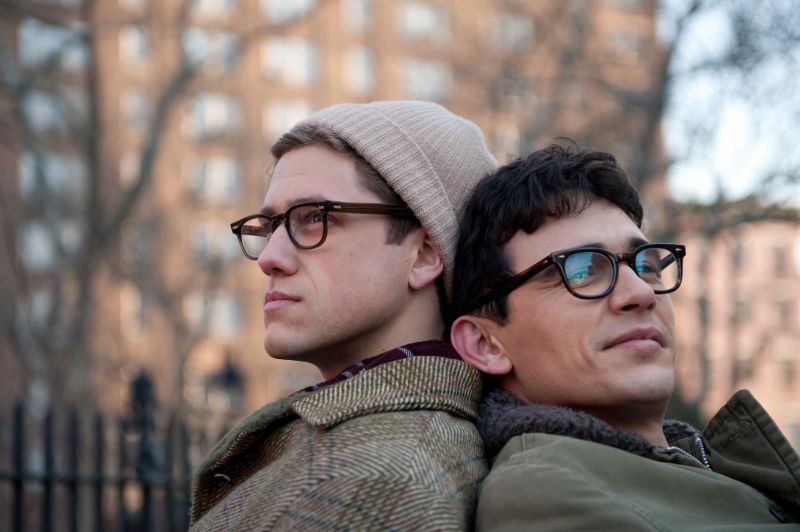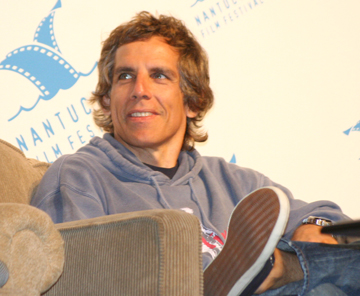|
|
||||||||||||||
|
Pro Tools
FILMFESTIVALS | 24/7 world wide coverageWelcome ! Enjoy the best of both worlds: Film & Festival News, exploring the best of the film festivals community. Launched in 1995, relentlessly connecting films to festivals, documenting and promoting festivals worldwide. Working on an upgrade soon. For collaboration, editorial contributions, or publicity, please send us an email here. User login |
"The German Doctor" Puts Argentina Under the Microscope
If the clues to a crossword puzzle answer are: "Titular character of the drama The German Doctor set in 1960 Argentina," and you don't promptly put:
in the allotted 12 spaces, you'd be advised to find another leisure pursuit. Already during the film's titles, creepy medical illustrations come up that, for anyone with a passing knowledge of Nazi eugenics, confirm the identity of the German doctor in question. With this, director Lucía Puenzo relinquishes any pretensions of putting over a thriller. You know whoddunit, whoizzit. Now down to the business of exploring the ordinary people who gave Mengele safe haven and why.
Puenzo's screen adaptation of her sixth novel follows an unsuspecting Argentine family who takes in Auschwitz's infamous "Angel of Death" as a guest at their new inn. The story opens as tween daughter Lilith (Florencia Bado) plays Chinese jump rope with a gaggle of indigenous Mapuche girls an eyeshot away from an attractive gentleman (Álex Brendemühl). Lilith narrates off-screen, "The first time we met, he said I was a perfect specimen..." As innocent as her string sport surely is, any strands he'll be manipulating are apt to involve DNA. The German-accented stranger, who presents himself as Helmut Gregor, arranges to trail Lilith's family on their drive through windswept Patagonia. Wending its way down Desert Road, the human caravan is submerged in the monumental landscape. Tempestuous rains suddenly force them to seek shelter. Mother Nature is a force to reckon with, even for the Mengeles of the species who try to best her. Already the viewer has come to see that The German Doctor harbors enough memories, dreams and reflections to do Jung proud. More's to come at the family's final destination on Nahuel Huapi Lake, whose Mapuche lore contrasts with the alpine vibe and gingerbread architecture of Bariloche's tight-knitted German-Argentine community. Wilkommen to the birthplace of Lilith's mother Eva (Natalia Oreiro), a third-generation descendent of emigrés who likely fled the instability of German Unification many decades prior for the tranquility of largely Catholic Argentina. After World War II, the remote idylia of Bariloche in turn offered hundreds of Nazis a refuge from Allied justice, among Swastika-saluting sympathizers. It's worth rewinding to a small moment that takes place before the parties head south. Lilith accidentally drops her dark-haired doll, Wakolda, as Helmut looks on. This would seem innocent enough unless you know that it's named after Guacolda, the wife of the Mapuche warrior Lautaro, who led a famous 16th-century rebellion against the Spaniards. ("Wakolda" is also the film's original title). If you've figured out that Hemut is a certain former SS officer bent on engineering a master race, the fall of the mestizo doll hits with an ominous thud. "Mixed blood is impure," the doctor later explains. "It interferes with how we remember that we were Sonnenmenschen." Puenzo's research dredged up discussion of Megele's dollmaking exploits during his alleged sojourn in Bariloche. Dolls are a motif to reckon with in this film. Lilith’s father Enzo (Diego Peretti) handcrafts them as a hobby, vesting each porcelain creation with unique features. When Helmut lures him -- through capital and ingenuity -- into mass-producing identical models with blue eyes and fair hair, it's up to Lilith to decide which is the more cogent credo: her father's inclusive humanity or the doctor's Aryan ideal of perfection. That the manufactured dolls have mechanical hearts can be no coincidence. Though Enzo designed the prototype for these tickers, what better symbol of Megele's ruthlessness? Lilith herself has the wide-set eyes and domed forehead of a Barbie, although she suffers an impediment. At age 12 she has an eight year old's body. As with the dollies, Helmut has a hand in fashioning Lilith's contours to conformist standards. This gets a nod from Eva, who allows Herr Doktor to pump the stunted "specimen" with growth hormone. Even more fun than wondering if the mother's name references Eva Braun is pondering her daughter's moniker. Swap a few words and "Lilith" becomes "Lolita." Undoubtedly part of the film's tension derives from the mutual attraction between biologically obsessed Helmut and the pubescent girl in the first flush of sexual and romantic feelings. According to Jewish folklore, Lilith is Adam's first wife as well as a seducer of men. Where is Eve -- or Eva -- in this creation myth? Puenzo's debut feature, XXY (2007) mirrors some of the issues developed in The German Doctor. Both center on an adolescent coming into romantic and political awareness and grappling with physical manipulations that will affect their identity. And just as the surgeon in XXY has a notion to fix what he sees as the protagonist's genetic defect, so too the German doctor imposes his social Darwinism on his young patient. Puenzo's 2009 feature, The Fish Child (El niño pez) charts a related quest for identity. The German Doctor broadens the writer/director's lab for studying ethics. Here she also levels a stinging critique against Argentine society in its zeal to cashier ethics for Nazi assets and capabilities. "I don't care who he is," says Eva of Helmut in her moment of medical need. "I do," counters Enzo, but even someone of his suspicious nature has spent the film being coopted as the mystery man advances a half a year's rent for the family's fledgling bed and breakfast, not to mention the wherewithal to launch a doll factory. Just as the screen characters are surrounded by clues, the viewer is invited inside their POVs to gauge what they knew and when they knew it. More to Puenzo's point, all but the most callous viewer roots for the doctor's success in fixing everyone's problems, thereby sharing in their complicity. To appreciate the self-serving ethos under scrutiny, it's illuminating to glance at a bit of history. Under Hitler, Germany had pledged to give Argentina major trade concessions after the war. Already in 1943 lust for sophisticated technology had sent Juan Perón to Germany to explore an arms deal. Perón himself had a soft spot for fascism, nurtured while he was an adjunct officer in Mussolini's Italian army in the 30s. He saw Nuremberg-style trials as an effront to military honor and sought to spare Nazis and their collaborators from such a fate. After the war, Argentina courted scientists and technicians who could bolster Perón's robust social and industrial program. Falsified visas, travel fare, property and jobs were some of the provisions extended to skilled professionals and officers around Axis Europe. Affluent Germans and Argentine entrepreneurs of German background greased the way for fleeing Nazis, a number of whom had considerable means of their own from the loot of their victims. Along with Mengele were such notorious criminals as Croatian mass-murderer Ante Pavelic, "Final Solution" chief Adolf Eichmann and "Butcher of Lyon" Klaus Barbie. Mengele may or may not have spent time in Bariloche, but he clearly logged some four years in Buenos Aires, where he ran a pharmaceutical operation and ostensibly continued experimenting with growth hormone on children, pregnant women and cattle. He hid in the open, even listing his name in the telephone book. With Eichmann's capture, he escaped to Paraguay and eventually Brazil -- where, while out for a swim, his heart stopped ticking. Ironically for a film whose title character is fixated on purity, The German Doctor is something of a hybrid. Grafted onto its traditionally styled melodrama is a reenactment of how several of its historical personalities might have behaved in reality. Nora Edloc (Elena Rogers), the Mossad agent after Mengele, was real; she was found murdered after Eichmann's capture. And the actual principal of the overtly fascist German school was high-ranking SS officer and war criminal Erich Priebke. One alumnus, documentarian Carlos Echeverría, contributed his school photographs as well as his personal story of having been severely beaten up for unearthing hidden Nazi books. Decades on, the spirit of the Third Reich still haunts Bariloche. As Puenzo recently told me, "We lost many locations, though we had signed contracts, when the owners got calls saying, 'You shouldn't let them shoot here.' " It's easy to imagine that the cast and crew of this hard-hitting production sought solace -- if not counsel -- from psychiatrist-turned-actor Diego Peretti.
26.04.2014 | Laura Blum's blog Cat. : Álex Brendemühl ARGENTINA Bariloche Diego Peretti eugenics Florencia Bado genetic purity Josef Mengele lucia puenzo Natalia Oreiro The German Doctor Wakolda Independent
|
LinksThe Bulletin Board > The Bulletin Board Blog Following News Interview with EFM (Berlin) Director
Interview with IFTA Chairman (AFM)
Interview with Cannes Marche du Film Director
Filmfestivals.com dailies live coverage from > Live from India
Useful links for the indies: > Big files transfer
+ SUBSCRIBE to the weekly Newsletter Deals+ Special offers and discounts from filmfestivals.com Selected fun offers
> Bonus Casino
User imagesAbout Laura BlumThe EditorUser contributions |
||||||||||||





















